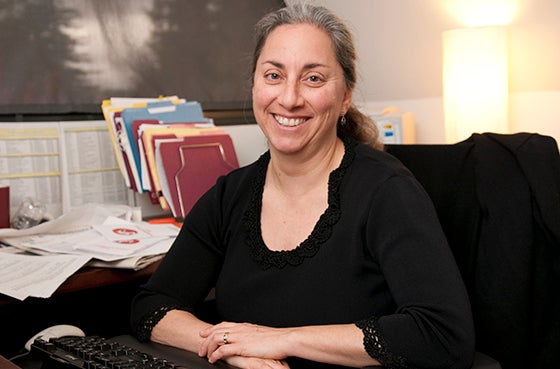Learning academic resilience at Stanford
Even Stanford students sometimes face academic challenges that they find daunting. Adina Glickman, director of learning strategy programs, founded the Stanford Resilience Project in 2011 to help students learn from the setbacks that are part of a rigorous education. She talks about the project and about the academic challenges that Stanford students experience—and offers advice to Stanford parents and guardians.
The Resilience Project, which you founded, helps Stanford students deal with disappointments they choose to label as “failures.” How does the project help and what kind of a difference have you seen it make?
First, it brings failure and setbacks out of the shadows and helps normalize it. Second, it helps students see the breadth of setbacks experienced by others, many of which they can identify with. Since so many students look around and see ‘effortless perfection’ the Resilience Project puts it right out there that college is incredibly hard work. There is no perfection. There is often failure. Finally, it communicates to students that Stanford believes in the importance of being real instead of perfect. It seems to make people feel a tenderness for the institution and gives it a kind of credibility. I think students feel that through the Resilience Project, Stanford is endorsing the idea that flaws are normal. That kind of humility makes all the things that aren’t flawed that much more compelling and rich.
We hear from many students that they appreciate the message of resilience and appreciate that they are confident they belong at Stanford even if they’re not perfect. Some students have said the project videos inspire them to continue working when they feel discouraged. In fact, one student said the Resilience Project is one of the best things about Stanford.
What academic challenges do Stanford students confront?
ALL kinds! The pace, volume and complexity of a Stanford education calls on skills that are often non-intuitive. Time management and procrastination are big challenges, as are fluctuations in motivation, distractions from humans and technology, and perfectionism. They get especially freaked out when they don’t know how to do something. A lot of students come here expecting examinations that are a variation on something they have already done. But that’s really more of an exercise than a true problem. Real problems are things you can’t easily answer from what you have done on your homework.
What support does Stanford offer to students who might be struggling academically?
We have study skills support through academic skills coaching—individual appointments and also workshops that happen around campus in dorms and community centers. The Schwab Learning Center also has learning skills and tutoring resources for students with learner variability. All undergrads can get free peer tutoring by appointment and also during drop-in office hours through the Vice Provost for Teaching and Learning and in many of the introductory courses in math, chem, econ and so on. The Hume Center for Writing and Speaking is another resource. In addition, athletes also have tutors available to them in the Athletic Academic Resource Center.
The Resilience Project recently sponsored the annual “Stanford, I Screwed Up.” What is that event all about?
“Stanford, I Screwed Up” is our annual celebration of failure and resilience. This year, it featured six students sharing stories about personal and academic setbacks. It was so popular we had to turn people away. But, fortunately, we recorded it.
Do you have any advice for Stanford parents and guardians?
The best advice I can give is for parents to let their student learn to navigate Stanford on their own. Parents need to be explicit with their students about putting the responsibility of seeking out support in the student’s hands. They’re here to learn – not just academic subjects – but how to be resilient young adults. Without finding their own footing, which may cause a stumble or an outright failure, they can’t develop the skills they need to be full adults. The important thing for parents to know is that we are here to help that process—and we do.

